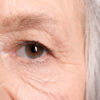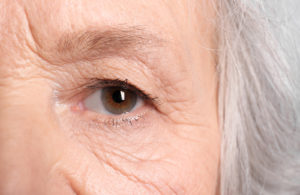
What You Need to Know About Vision Loss in Seniors
New figures from the U.S. Census show that by 2030 – when the first baby boomers reach 84 – all baby boomers will be over the age of 65. That means more than 20 percent of the population will be over 65, compared to only 13 percent today.

If you’re not yet quite at senior age, chances are, you’re taking care of someone who is. Perhaps it’s a senior parent or another family member. Doing so is almost like a rite of passage for humans. As our elders age, we take on the responsibility of caring for them. That could include finding them adequate living accommodations, ensuring they see the doctor, and monitoring their mental health. While vision loss is a huge problem among seniors, it’s not the only problem.
Therefore, it’s important to understand the special health needs of our elders. And what usually comes to mind are the “big-picture” ailments. For example, broken bones from a fall and hip replacements. Arthritis treatments to ease aching joints, strokes, heart attacks, and cancer are some other possible examples. Senior isolation is also an issue, as is depression and anxiety. Unfortunately, declining vision can only exacerbate these unrelated health problems.
Vision Loss in Seniors
When we think of vision loss, it feels as inevitable as gray hair and wrinkles. What’s a grandma or grandpa without a pair of reading glasses or bifocals?
So, it may surprise you to learn that aging vision is a significant cause of depression in seniors. And not only that but vision impairment may be related to earlier death.
In a recent UK study, researchers found that in nursing home residents, depression runs parallel to vision issues. Seniors experience bullying, discrimination, and disrespect due to their poor vision. It contributes to their feelings of loneliness and isolation. Many seniors’ depression can be reduced by correcting refractive errors such as nearsightedness, farsightedness, and presbyopia (aging vision). When seniors’ vision improves, so does their quality of life. That could either be through surgery, proper eyewear, and better eye health.
Another study found that people who had received cataract surgery in their 70s or 80s had a lower mortality rate than people who did not have their cataracts treated. . The causes of death associated with cataracts include cancer and vascular diseases. However, cataract surgery significantly improved the mortality rates for women in that age group.
For seniors, vision impairment is a dreaded condition that has a much more profound effect on well-being. Not to mention the much more immense effect on their psychological health than was previously thought.
Vision Loss and Lowered Quality of Life
When you think about it, it makes perfect sense. Loss of vision means loss of freedom (particularly freedom of movement), which only exacerbates the other losses the aging body is experiencing.
A recent study published in Clinical Ophthalmology found that vision impairment is significantly linked to mental health issues like depression and anxiety. Couple this with the loneliness and loss of friends and family that many older people face, and you can see why vision loss is such a key issue to address with older generations. As baby boomers age, there will be more and more people experiencing these issues to worry about. It’s important we remember to look after our friends and family members’ mental health as their vision ages, too. Plus, it’s all the more reason to keep up with your vision health from early on in your life–you’ll be protecting your future mental health, too.
As the baby boomers age, they are changing the face of aging. Think of Madonna, who recently celebrated her 61st birthday this year. She’s in better physical shape than some folks half her age. Well known for her rigorous adherence to a healthy diet and exercise, she leads the way for the seniors of the future. Move over shuffleboard, Jell-O, and canasta; make way for eye vitamins and strutting your stuff like Tina Turner.
Do Our Diets Really Matter?
As a nation, we are becoming more aware of the role our diet plays in our health. It should, therefore, come as no surprise that our diets can also affect our vision. Many of the same vitamins and minerals that the rest of our bodies need are also needed by our eyes. The problem is ensuring that we receive enough of the nutrients to reach all parts of the body that need them. Even with the best intentions in the world, it can be difficult to make sure that the foods we eat supply the necessary vitamins and minerals.
Many families have both parents working outside the home. This makes meal planning difficult. Often, a prepared meal that can be warmed in the microwave is the best that can be done to ensure healthy eating habits. The problem is that many of these meals are prepared in ways that damage the vitamins and nutrients they should provide. In cases where time is just not available to prepare meals, an eye supplement may be the only alternative available.
For older people, this can be an excellent choice to ensure they receive the vitamins and nutrients that their aging eyes require. It’s even more difficult for elderly people to shop and prepare meals. This is especially true if they are used to feeding more than one person. Trying to cut back recipes can be difficult and just not worth the effort as we age.
Delaying the Effects of Aging Vision
The benefits of proper health on aging vision are priceless. As we age, it seems at times that our bodies are turning against us. We can do so much less than we are used to doing. This becomes even more important with our vision because we lose the ability to see.
Watching television, reading a book, and even recognizing our family members becomes difficult or impossible as our vision fades. It makes it easy for depression to set in. While we may be restricted physically, by our bodies at least, we can still interact with those around us. The least we can do to ease the transition into our later years is to take care of our eyes.
Our Rebuild Your Vision Ocu-Plus Formula Contains All 17 Vitamins, Minerals, and Herbal Supplements to Improve Your Eye Health!












I’m so glad to hear that problems with seeing have a psychological impact. That scares me more than anything else, because it would make you feel so vulnerable to not be able to see. Thanks for that.